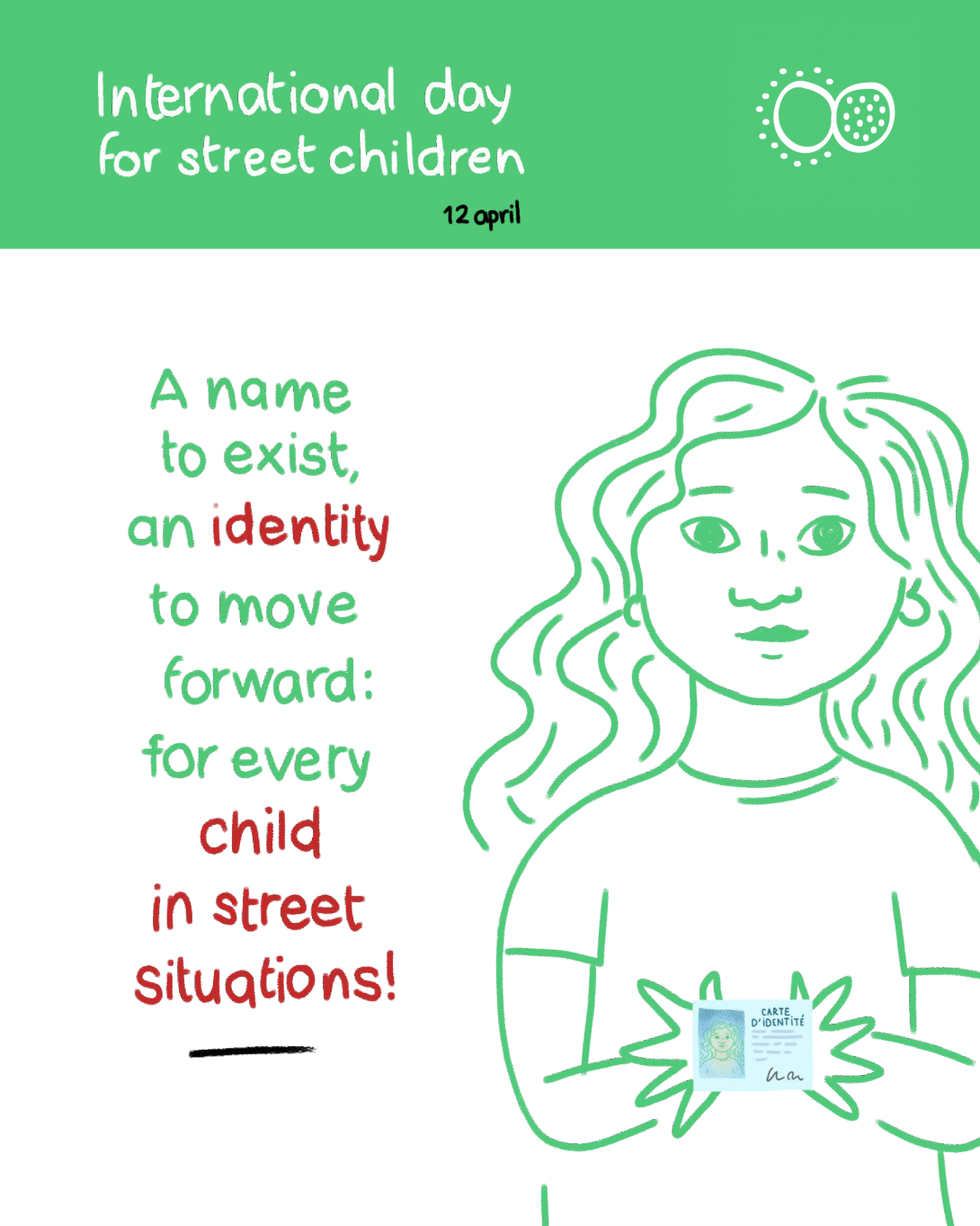
Without identity documents, millions of children around the world, including those living in street situations, are deprived of education, healthcare, protection, and many other rights. Invisible to the authorities and often rejected by their families, children in street situations are among the most vulnerable. Guaranteeing their right to identity is key to providing them with protection, future opportunities, and a place in society.
On the occasion of the International Day for Street Children 2025 (#IDSC2025), join us and our local partners in making these children's voices heard and advocating for their right to identity.
We call on governments to act now by taking immediate and concrete measures to ensure that children in street situations have their right to identity recognised!
Find our recommendations to states to ensure that no child in street situations is ever deprived of their identity.
Adi's Story: An Identity to Move Forward
The right to identity ensures that every child is legally recognised from birth and throughout their life. It is based on essential elements such as having a first and last name, being registered at birth, holding a nationality, and, whenever possible, knowing and being raised by their parents. However, not all children have this right fulfilled.
Discover Adi’s story, a reflection of the reality faced by millions of children worldwide who are forced to live without an identity.
A name to exist, an identity to move forward: for every child in street situations
Birth registration
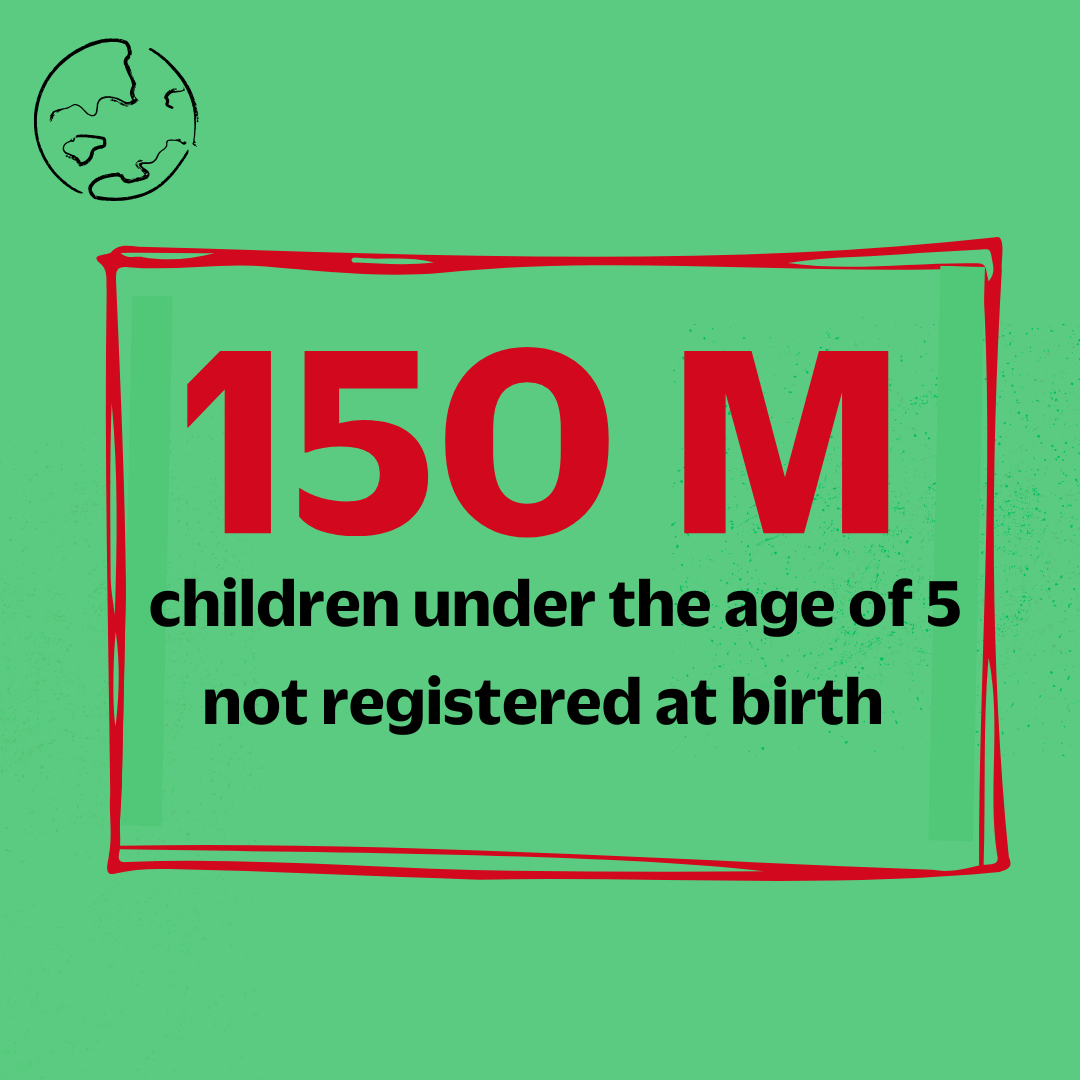
States must implement concrete measures to simplify and improve access to birth registration:
- Extend the legal deadline and simplify birth registration procedures.
- Ensure free birth registration and access to other identity documents for all vulnerable children and families, especially those in street situations
- Make birth registration centres accessible to all, particularly for families in street situations, by opening local offices across their territory and deploying mobile units to reach the most marginalised populations.
- Train civil registry officials on the realities faced by children and families in street situations to better support them in birth registration and obtaining or recovering identity documents.
Obtaining and Recovering Identity documents
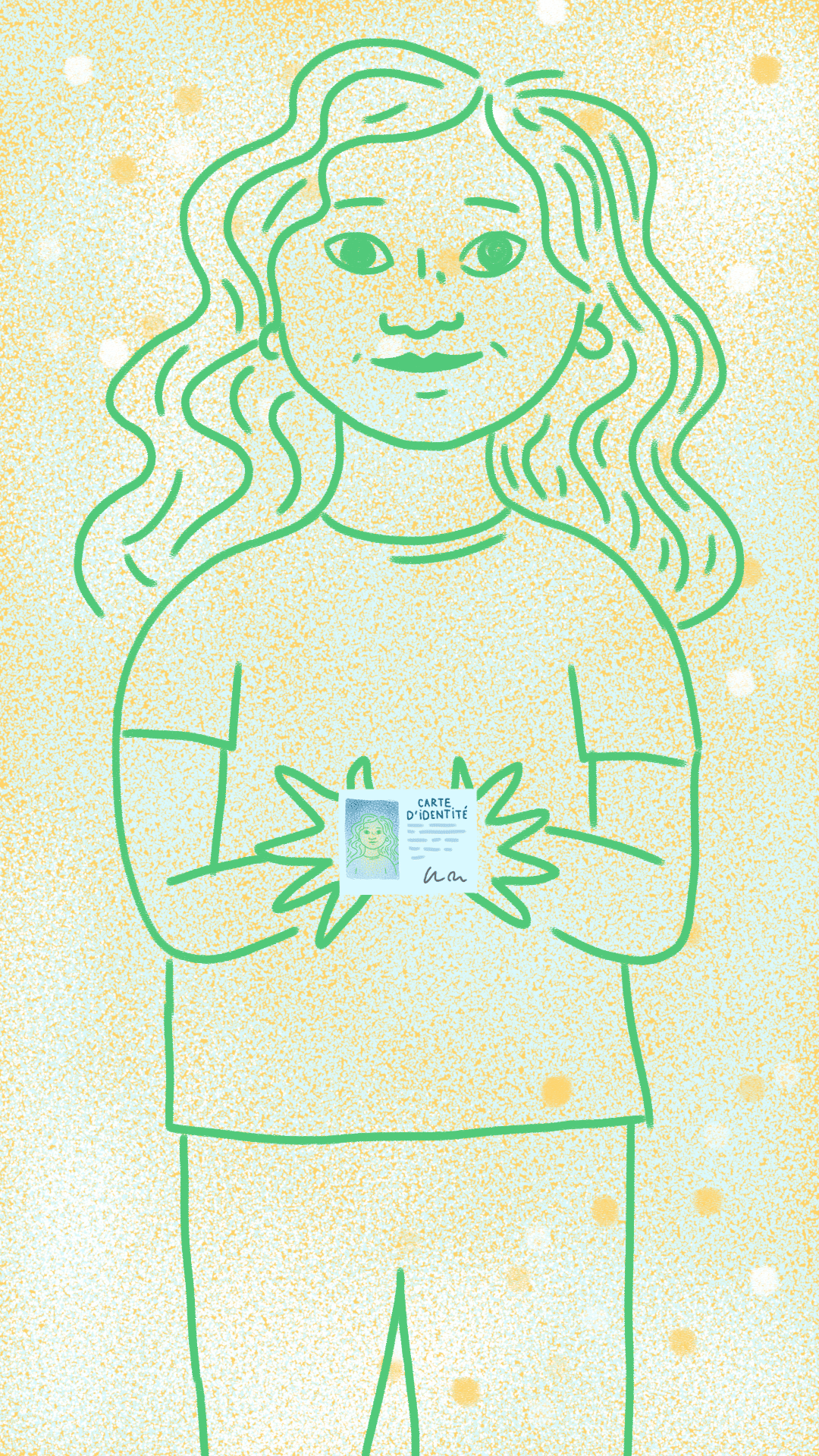
States must implement concrete measures to ensure that children in street situations can obtain and recover their identity documents:
- Simplify and speed up procedures for obtaining and recovering identity documents for all children and families in street situations, and ensure they are entirely free of charge.
- Provide free and tailored legal assistance to vulnerable children and families, especially those in street situations, to help them obtain or recover their identity documents.
- Establish mobile administrative units that are accessible and adapted to children and families in street situations, including in rural or remote areas.
- Digitise civil registry records and establish a national database accessible across the entire country.
Access to education
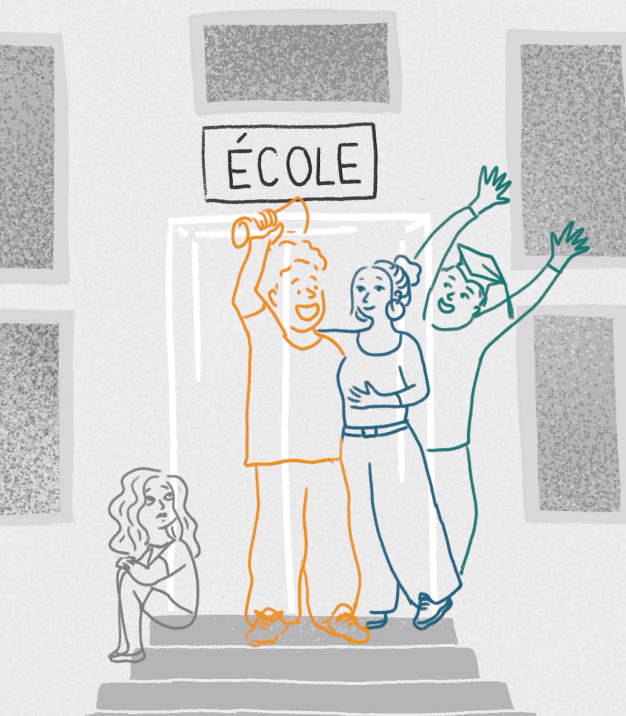
States must implement concrete measures to ensure that children in street situations, including those without identity documents, have effective and uninterrupted access to education:
- Adapt public school enrolment procedures by easing administrative requirements for children without identity documents, allowing them to attend school, take exams, and obtain their diplomas.
Collaboration between the State and Civil Society
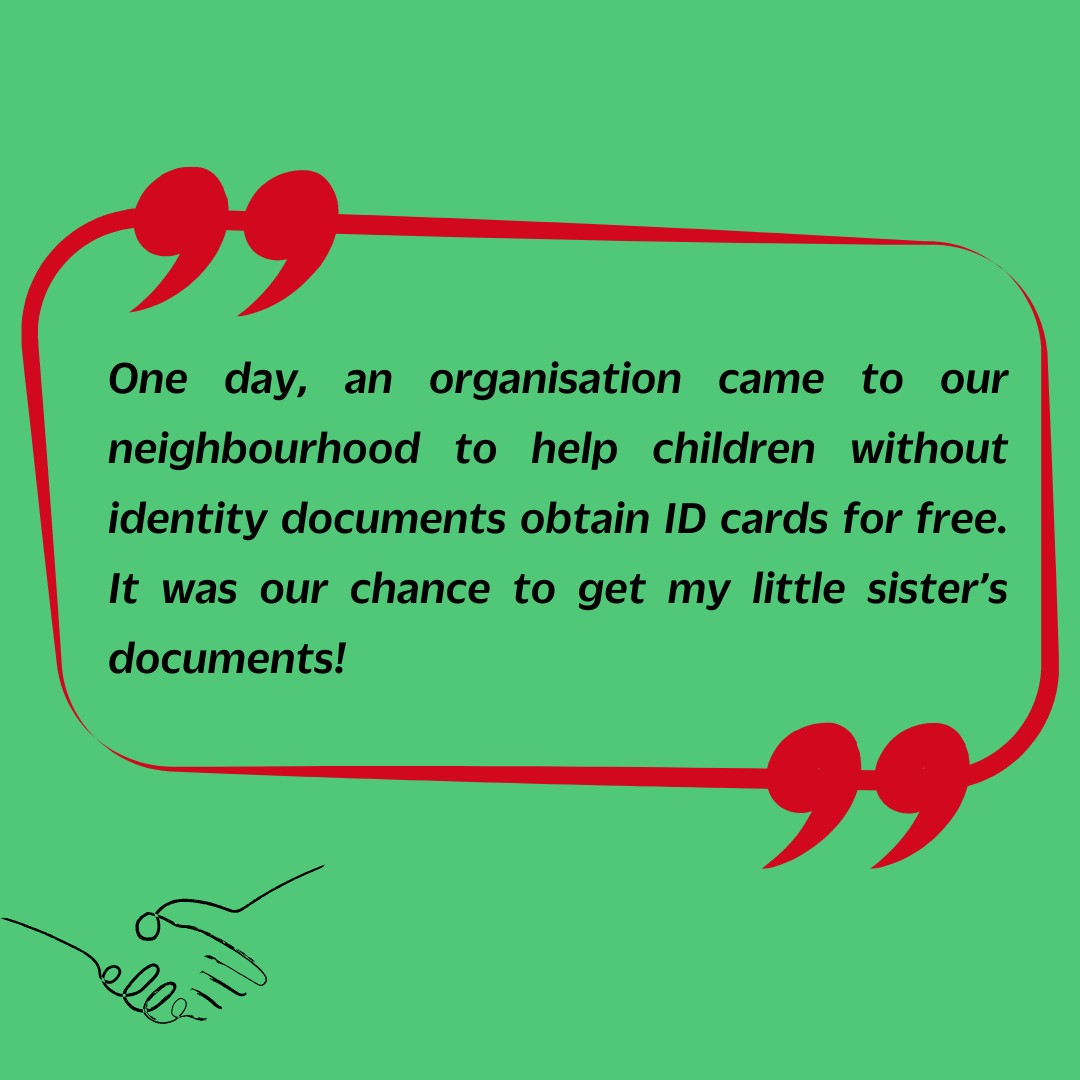
States must strengthen collaboration with civil society to guarantee the right to identity for children in street situations:
- Conduct and fund national initiatives and awareness campaigns on the importance of birth registration and identity documents, specifically targeting children and families in street situations.
- Identify and assist unregistered and undocumented children in street situations in obtaining their identity documents.
How did our partners celebrate IDCS 2025 with the children?
Our partners in the Republic of Congo, Madagascar, the Democratic Republic of Congo, and Cameroon came together to organise activities with children, united by a common goal: to raise awareness among communities and authorities about the lack of the right to identity for many children in street situations, while highlighting the obstacles these children face in exercising their rights and the actions needed to address this issue.
By placing the children at the heart of its various celebrations and activities, our partners enabled their voices to be heard, increased their visibility, and reminded everyone that no child should be deprived of legal recognition. The International Day for Street Children thus contributed, in each of these countries, to laying the foundation for lasting change in favour of their inclusion, protection, and rights.
Republic of the Congo
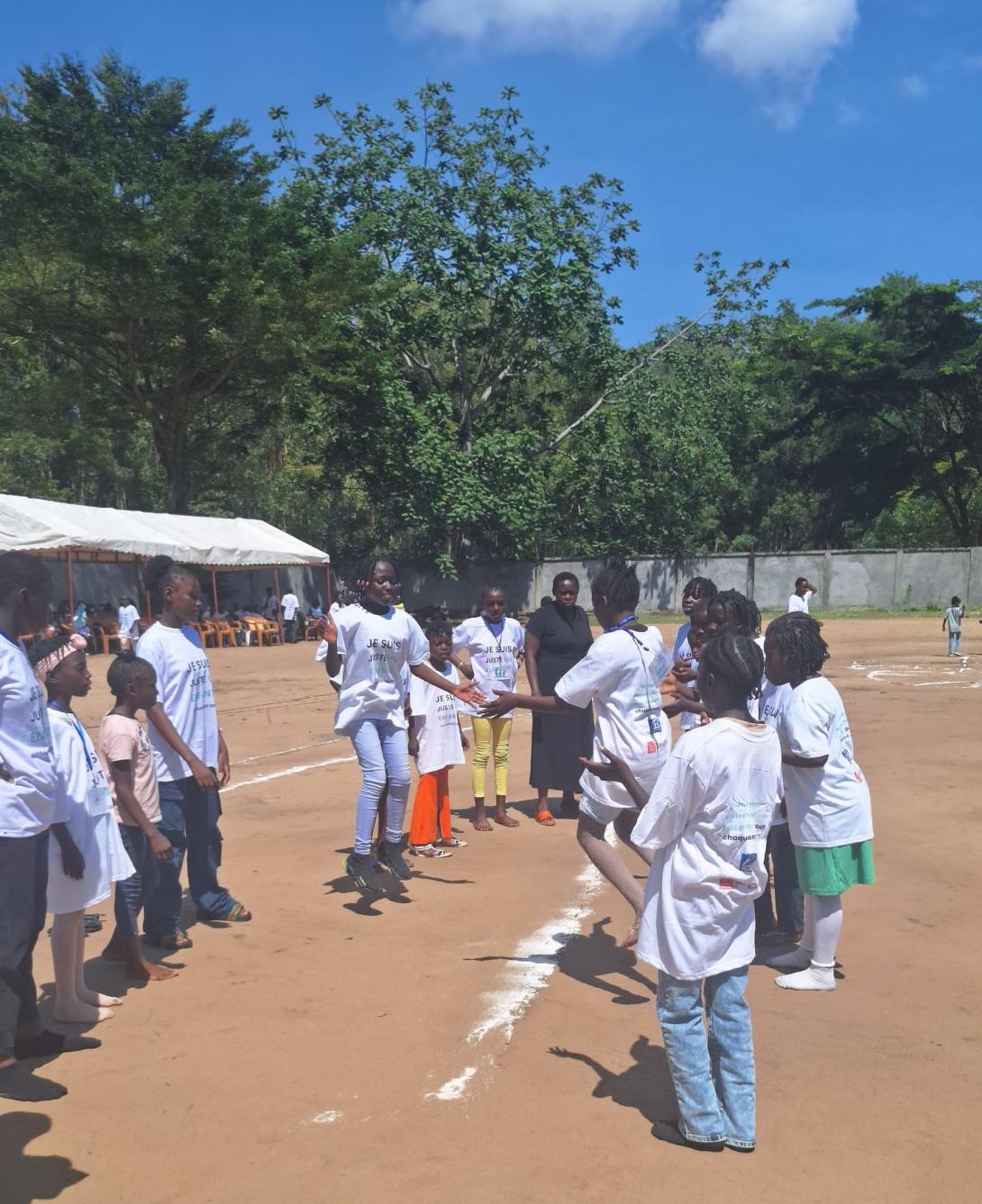
In Brazzaville, several children supported by member organisations within the REIPER (Réseau des Intervenants sur le Phénomène des Enfants en Rupture), and local authority representatives gathered to mark this important day.
The event was filled with various activities that allowed the children to express themselves and highlight their realities. Artistic performances blending theatre, slam poetry, and singing were offered, alongside an exhibition of drawings created by the children, inspired by their experiences or imagination. A key moment of the celebration was the handing over of birth certificates to several children who had previously lacked identification papers—an important step made possible through the efforts of REIPER and the support of prosecutors and municipal services. This gesture marks a crucial first step towards their legal recognition and access to their rights. Finally, participants gathered around a women’s football match, a symbol of solidarity, inclusion, and equality.
Madagascar
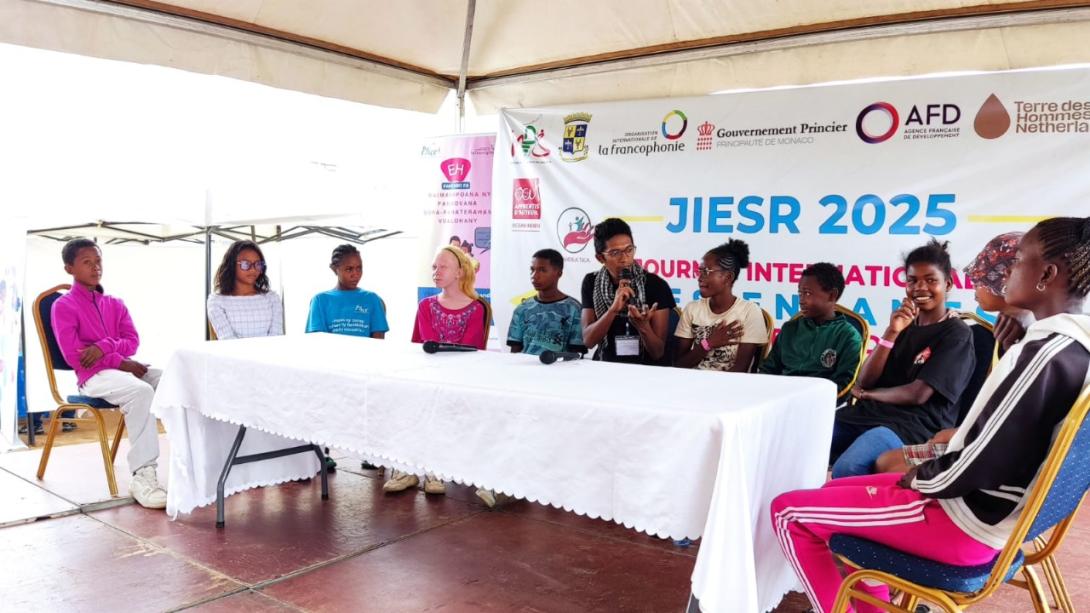
In Antananarivo, nearly a thousand children participated in activities organised by the Plateforme de la Société Civile pour l’Enfance (PFSCE) and its partners. This vibrant and participatory event brought together many children in street situations for a programme combining awareness-raising, artistic expression, and civic engagement. The day was filled with a festive carnival with the children, a series of fun and cultural activities such as games, slam and painting contests, theatrical performances, and a roundtable discussion led by the PFSCE children's committee. A play titled "From the Street to Hope", performed by the children themselves, particularly left an impression with its hopeful message, illustrating an optimistic vision of the future for children in street situations. The children also received medical consultations, meals, and t-shirts. The event concluded with a press briefing and official speeches, marking a strong commitment from the present authorities.
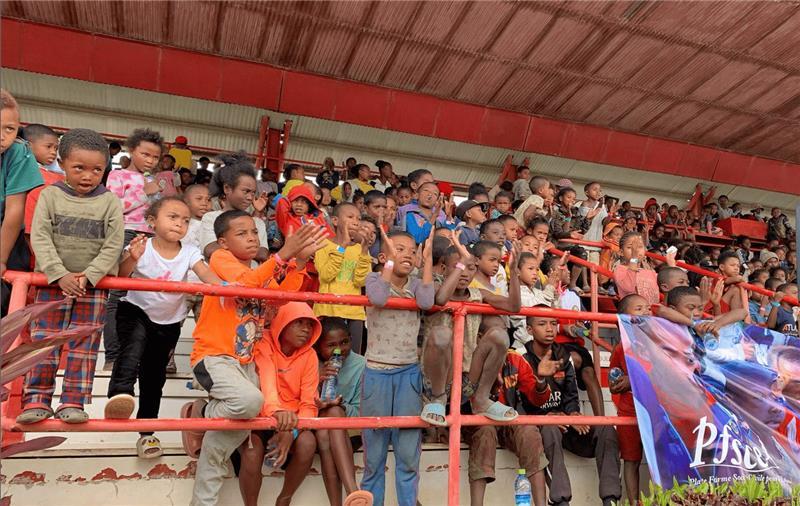
Ahead of this celebration, the children’s committee had hosted a special TV programme to discuss the major issues surrounding this important international day.Through their speeches during the celebrations for IDCS 2025, the children reminded everyone that:
"Children in street situations have the same rights as all other children, including the right to identity."
"Children in street situations need special protection and attention."
On the occasion of IDCS, the PFSCE also launched a large-scale campaign for regularisation, aiming to ensure the issuance of birth certificates for several identified children in street situations who still lack this essential document. This commitment marks an important step toward the recognition of their rights, with a concrete goal of delivering birth certificates in the coming months.
Democratic Republic of the Congo
In Kinshasa, our seven partners mobilised by organising activities highlighting the right to identity. Among the many initiatives organised with the children to celebrate this international day:
At the office of ORPER (l’œuvre de Reclassement et de Protection des Enfants de la Rue), the children were at the heart of the organisation and the facilitation of the event. Their speeches on the respect of rights, particularly the right to identity, sparked a rich dialogue with street leaders, neighbourhood chiefs, and social services, focusing on the issues related to the right to identity and the realities faced by children in street situations. Dance performances, powered by the energy and commitment of the youth, also punctuated the celebration.
The speech delivered by Rebecca, a young girl from one of the ORPER centres, deeply moved the audience:
"The daily life of these children called ‘street children’, who are victims of social injustice and blatant discrimination, deprived of their rights in various forms."
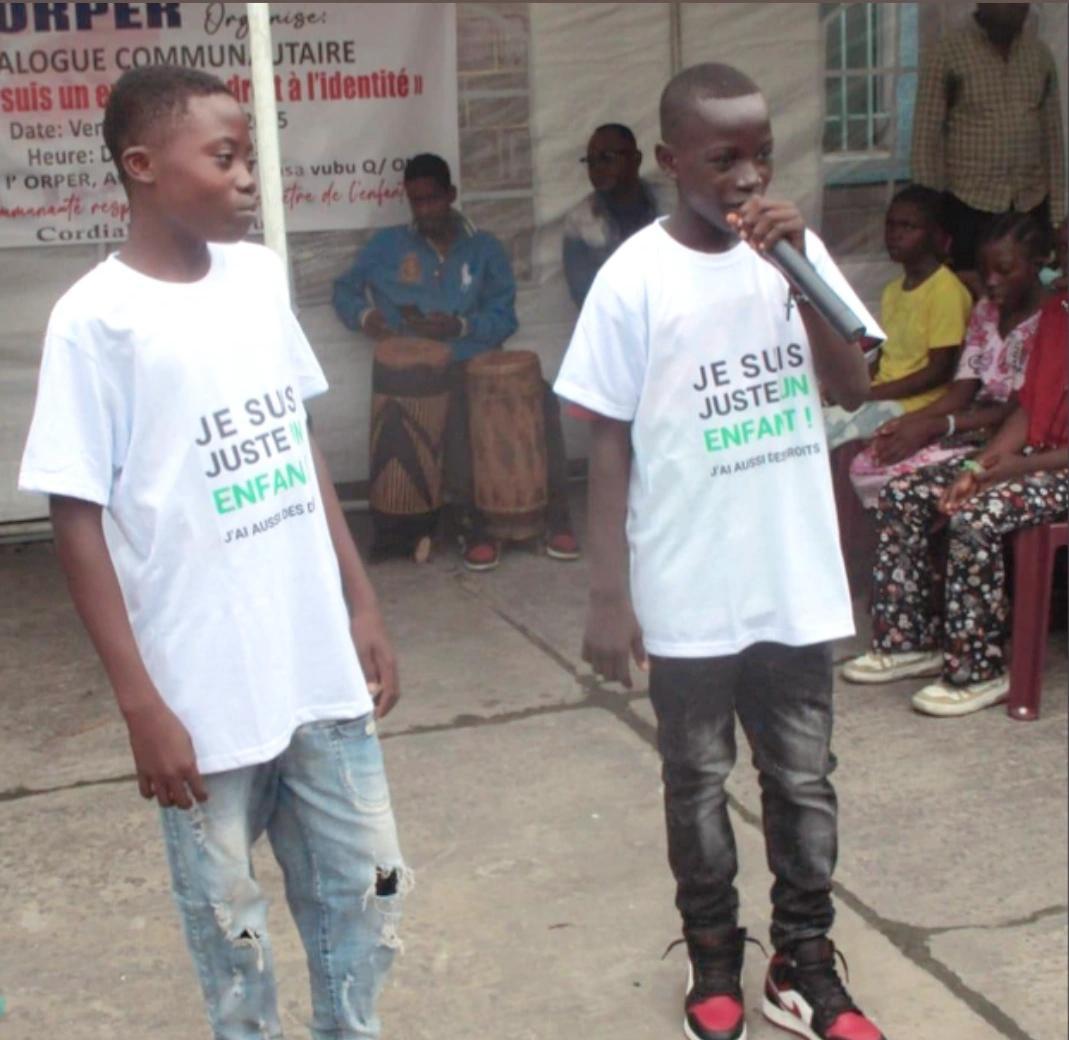
The Jeunes au Soleil association organised a community dialogue on the challenges of accessing the right to identity, particularly those related to civil registration for children in street situations. This exchange was enriched by a theatrical performance and a ballet, offering both a playful and impactful form of awareness-raising.
The Vivre et Travailler Ensemble (VTA) centre carried out a sensitisation campaign led by the young people themselves, targeting adults, including parents, authorities, and school representatives. Through their testimonies and messages, the children advocated for the recognition of their rights. Finally, the centre opened its doors to the public, allowing visitors to explore the premises, interact with professionals, and gain a better understanding of the daily lives of the children hosted there. An exhibition of handmade creations by 30 young people living in the centre closed the event, attracting over 200 people, including community members, civil society, local authorities, and some school representatives from the neighbourhood. This moment of sharing helped showcase the children’s talents while strengthening community bonds.
Cameroon
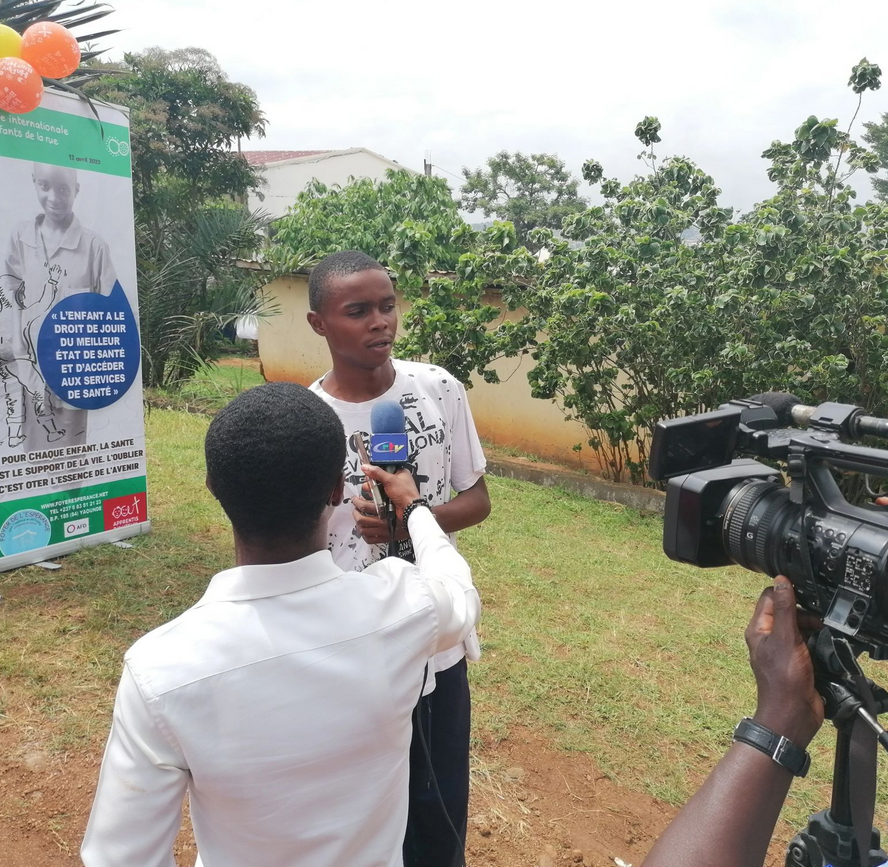
In Yaoundé, the Foyer de l’Espérance celebrated the IDSC by focusing on themes of identity and the right to health. The day highlighted the importance of identification and medical care for children in street situations, including those without identity documents. Throughout the week of 12 April, several civic actions were carried out. Among these, symbolic maintenance of public buildings was performed to remind everyone that just as these infrastructures need regular care to remain functional, children also need regular medical and administrative support to grow with dignity.
A clean-up walk also brought together many young people, receiving widespread media coverage on television. This visibility served as a powerful advocacy tool, helping raise awareness of a cause that is too often overlooked. The closing ceremony, held on 12 April, was a festive occasion, showcasing the children's talents through sketches, dance competitions, culinary exhibitions, traditional games such as tug-of-war, and recitations. Through these creative expressions, children in street situations reminded everyone of the importance of their legal recognition so that their voices, dreams, and talents are fully acknowledged and valued.